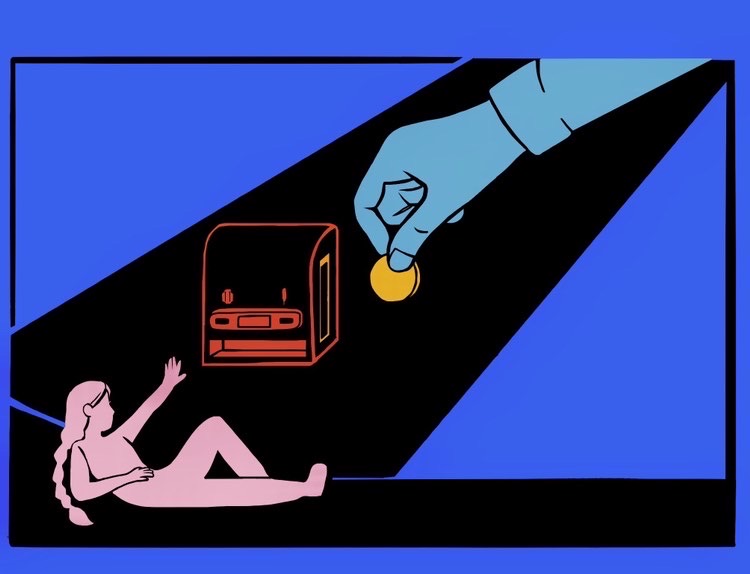Empty words and empty dispensers
Photo courtesy of Ella Martin
The dispensers provide an excellent option to students who don’t have access to menstrual products at home. Instead, these students must now rely on others for these essential supplies.
Despite the administration’s promise to stock the menstrual product dispensers in girl’s restrooms last school year, the dispensers remain empty, marking the third year the school has failed to fulfill student’s lawful rights.
A visual inspection of two-thirds of girl’s bathrooms throughout the school revealed that none of the dispensers surveyed were stocked with any products, a fact made apparent by the bright yellow “empty” signs filling the slots of the machines that would have otherwise been filled by tampons and pads.
“As a woman, I am disappointed to see them not stocked, especially when I need them, but the custodians are the ones refilling them,” said junior Anna King. “They are the lowest paid people in our schools and have a lot of responsibility.”
While it is true that the custodial staff have the job of refilling the dispensers, it falls on administration to make sure that there are products to be stocked in the first place. In an interview with Andrew Muir last March, the former Director of Student Activities, the lack of products and what administration was doing to rectify the issue was discussed. A key point brought up was the logistical challenges of knowing the correct quantity of products to buy and how often to buy them, based on the general usage of them by students. While these must be considered when buying any sort of product intended to be used by a large number of people, the same logic can be applied to toilet paper and soap. If the administration can figure out how to buy the correct amounts of toilet paper and soap for the entire student body, why can’t they do the same for half the amount?
An additional and particularly important aspect of the school’s responsibility to provide menstrual products is its legal obligation to do so. Virginia law requires these products be provided to all students in grades five through 12 throughout the entire state of Virginia. It is also worth noting that after speaking with Muir, change did occur. After March’s discussion, the dispensers were stocked for the following two months of the school year, showing that when prompted, progress can occur.
“As if it weren’t enough that the school is failing to meet legal expectations of providing menstrual products [which has an affect] on our lives as human beings, it has an impact on our education and is limiting our ability and right to attend classes in a safe environment,” explained junior Elizabeth Fairchild.
Nonetheless, the bottom line is that as of the 2022-2023 school year, the dispensers are empty once again. It is integral that that discrepancy is repaired for the sake of students’ health and wellbeing.
“What if you don’t have access to the things you need?” said Fairchild. “What are we expected to do?”






